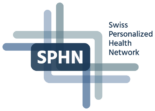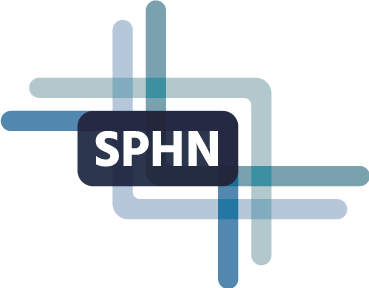Task Forces
During the Review of the SPHN Initiative in 2019, several gaps were identified in the SPHN infrastructure landscape with a need for action. To address them, Task Forces, also known as adhoc working groups, were created and tasked with a specific mandate.
The Working Group shall provide a survey of current practices in the field in Switzerland and identify relevant international examples of meta-data catalogues. It will explore what communities are active in the field and how these communities tackle the challenges associated with the design and development of such catalogues: meta-data description standards, best practices, references ontologies to describe these datasets, search instruments, etc. Further, the Working Group shall explore the different types of datasets likely to be described in such catalogues (research data, cohort data, public access data, restricted access data, registry data, data as stored in clinical data warehouses, etc.).
Furthermore, the Working Group shall explore the feasibility of designing a dataset catalogue to primarily find and access Swiss datasets. The specification of the catalogue should build upon existing guidelines, be compatible with the SPHN environment, principles, and efforts and integrated into the overall Swiss landscape. It will also pay attention to international initiatives (e.g. dbGaP, EGA, GA4GH) in the domain. More information on the mandate can be found here.
Chair: Patrick Ruch (HES-SO, SIB)
Coordination: PHI
Members:
| Rémy Bruggmann | UniBE |
| Cornelia Kruschel | USZ |
| Bernd Rinn | SIS, ETHZ |
| Thierry Sengstag | sciCORE, University of Basel |
| Heinz Stockinger | Core-IT, SIB |
| Constantin Sluka | USB |
| Andre Kahles | ETHZ |
The Working Group shall develop a “Harmonized Swiss Cohort and Registry Strategy”. The concept should build upon existing guidelines, be compatible with the SPHN environment, principles, and efforts and integrated into the overall Swiss landscape. It should focus on the needs of cohorts and the use of cohort data for research, identify areas where harmonization is beneficial in order to achieve technical and semantic interoperability. Adopting the FAIR principles (Findable, Accessible, Interoperable, and Reusable), common guidelines, streamlined processes and toolboxes should provide usable resources not only for new cohorts but also for existing ones. More information on the mandate can be found here.
Chair: Murielle Bochud (CHUV)
Coordination: PHI
Members:
| Adrian Spoerri | Swiss National Cohort, ISPM Bern |
| Huldrych Günthard | HIV cohort, USZ |
| Luca Crivelli | Health Economics, SUPSI |
| Carlo Largiadèr | Liquid Biobank Insel |
| Nicole Probst-Hensch | Swiss TPH |
| Valérie Pittet | Swiss IBD Cohort Study |
| Michael Koller | Swiss Transplant Cohort Study, USB |
| Thierry Sengstag | sciCORE |
| Michael Weisskopf | USZ |
| Marc Filliettaz | Legal Department SIB |
| Stephanie Wyss | SNSF |
| Martine Bourqui-Pittet | FOPH |
| Constantine Sluka | USB |
| Christine Currat | SBP |
Further, SPHN is involved in the following national working groups which are led by partner organizations:
Along with the promises of personalized healthcare, citizens and patients are expressing an increasing will to be actively involved in healthcare decision-making in general and the related (clinical) research performed. Given the fact that personalized health research depends upon large numbers of patients (and citizens) to being willing to share their clinical information, biological samples and genomic data, acceptance and understanding for the personalized health care enterprise need to be established broadly in the general patient population and public. An open dialogue, transparency and knowledge-building measures are necessary to support trust and a positive attitude towards data sharing for research purposes and clinical research in general. The development of such measures should involve patient perspectives early on.
SPHN, therefore, issued a mandate for establishing a Swiss Patient & Citizen involvement Think Tank for Personalized Health and Clinical Research. The Think Tank shall identify patient/citizen related issues in the context of personalized health and clinical research in general and advise different organizations (such as SBP, SCTO, and SPHN etc).
The aim of the guidelines is to clarify the personal data and biological material "ownership" question, and to make suggestions to resolve, i.a., the inconsistencies found in existing documents. Further, it also seeks to provide guidance on the IP rights regimes and options offered by the harmonised DTUA and MTA templates.

